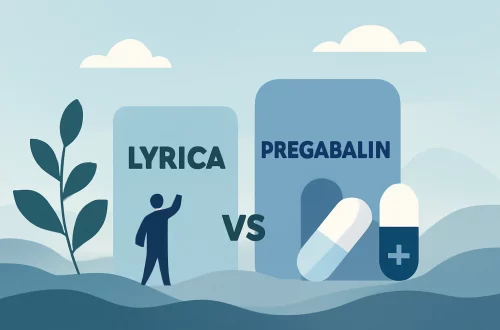
Rybelsus vs Metformin: Choosing the Right Diabetes Treatment Option
Managing diabetes is a complex and multifaceted challenge that requires careful consideration of various treatment options. Among the most common medications prescribed for Type 2 diabetes are Rybelsus and Metformin, both of which have distinct mechanisms of action and therapeutic benefits. Understanding these differences is crucial for patients, caregivers, and healthcare professionals alike, as it helps inform treatment decisions that can significantly impact a person’s quality of life.
While Metformin has long been the first-line medication for managing blood sugar levels, Rybelsus, a newer entrant in the diabetes medication market, offers an innovative approach to glycemic control. Both drugs are designed to help individuals maintain stable blood sugar levels, yet they do so through different biochemical pathways. This divergence in action not only illustrates the evolution of diabetes treatment but also opens up discussions about the effectiveness, side effects, and long-term implications of each medication.
As the landscape of diabetes management continues to evolve, it’s essential to have a comprehensive understanding of these medications to make informed decisions. This article will delve into the mechanisms, benefits, side effects, and considerations associated with Rybelsus and Metformin, providing a well-rounded perspective on these commonly prescribed diabetes treatments.
Understanding Metformin: The First-Line Treatment
Metformin has been the cornerstone of Type 2 diabetes treatment for several decades. It is favored primarily for its ability to lower blood sugar levels without causing significant weight gain, a common concern among diabetes patients. Metformin works primarily by reducing hepatic glucose production, decreasing intestinal absorption of glucose, and improving insulin sensitivity at the cellular level. This multifaceted approach not only helps regulate blood sugar but also contributes to overall metabolic health.
One of the key benefits of Metformin is its well-established safety profile. Extensive research has demonstrated that it is effective in reducing the risk of diabetes-related complications, such as cardiovascular disease. Moreover, Metformin is often associated with modest weight loss or weight stabilization, making it an attractive option for many individuals struggling with obesity alongside diabetes.
Despite its numerous advantages, Metformin is not without side effects. Gastrointestinal issues, such as diarrhea, nausea, and abdominal discomfort, are among the most common complaints. These side effects often lead to discontinuation of the medication or dose adjustments. Additionally, there is a rare but serious risk of lactic acidosis, particularly in patients with certain kidney conditions. Therefore, regular monitoring and follow-up with healthcare providers are essential for those prescribed Metformin.
Another consideration is that Metformin may not be suitable for everyone. Certain populations, including those with severe renal impairment or specific metabolic disorders, may require alternative treatments. Therefore, while Metformin remains a widely prescribed medication, it is not a one-size-fits-all solution.
In conclusion, Metformin’s role in diabetes management is well-documented, and its benefits often outweigh the potential drawbacks. Understanding its mechanism and effects can empower patients to engage in meaningful discussions with their healthcare providers about their treatment options.
The Rise of Rybelsus: A New Approach to Diabetes Management
Rybelsus, a relatively new oral medication for Type 2 diabetes, represents a significant advancement in diabetes treatments. The active ingredient in Rybelsus is semaglutide, a GLP-1 receptor agonist that mimics the action of the incretin hormone. This hormone is naturally produced in the gut and plays a crucial role in regulating blood sugar levels by stimulating insulin secretion in response to meals and inhibiting glucagon release.
One of the most notable benefits of Rybelsus is its ability to promote weight loss, which is particularly beneficial for individuals with Type 2 diabetes who may struggle with obesity. Clinical studies have shown that patients taking Rybelsus experience greater weight reduction compared to those on Metformin alone. This weight loss can significantly enhance overall health, reduce the risk of cardiovascular complications, and improve insulin sensitivity.
Rybelsus also offers the advantage of convenience, as it is taken orally rather than via injection, which is common with many other GLP-1 receptor agonists. This oral formulation can improve adherence to the medication regimen, as many patients prefer pills over injections. However, it’s important to note that Rybelsus should be taken on an empty stomach, with a specific wait time before consuming food or beverages.
While Rybelsus has shown promise in managing blood sugar levels and promoting weight loss, it is not without its challenges. Common side effects include gastrointestinal issues such as nausea, vomiting, and diarrhea, similar to those experienced with Metformin. Additionally, there are potential risks associated with pancreatitis and thyroid tumors, leading to the necessity for careful patient selection and monitoring.
In summary, Rybelsus offers a novel approach to managing Type 2 diabetes, with its unique mechanism and benefits. As with any medication, understanding its role in diabetes management is essential for making informed healthcare decisions.
Comparative Efficacy: Rybelsus vs. Metformin
When comparing the efficacy of Rybelsus and Metformin, it is essential to consider their mechanisms of action and resultant impacts on glycemic control. Metformin has a long-established history of effectiveness, particularly in lowering HbA1c levels, a key marker of long-term blood sugar control. Clinical studies indicate that Metformin can reduce HbA1c levels by approximately 1% to 2%, making it a reliable choice for many patients.
On the other hand, Rybelsus has also been shown to achieve significant reductions in HbA1c levels, often exceeding those of Metformin, particularly when prescribed as part of a comprehensive diabetes management plan. Some studies suggest that patients taking Rybelsus can experience reductions of 1.5% to 2.5% in HbA1c levels, making it a potent option for those who require more intensive glycemic control.
Another critical aspect to consider is the impact on weight. As mentioned earlier, Rybelsus is associated with weight loss, which can be a crucial factor for patients with Type 2 diabetes who are also dealing with obesity. In contrast, while Metformin is generally weight-neutral or may even promote slight weight loss, it is not typically associated with significant weight reduction.
However, the choice between Rybelsus and Metformin should not be based solely on efficacy. Factors such as patient preferences, tolerance to side effects, cost, and overall health status must all be taken into account. Some patients may respond better to one medication over the other, and healthcare providers often tailor treatments based on individual needs and lifestyles.
Ultimately, the efficacy of Rybelsus and Metformin varies among patients, making it imperative for healthcare providers to work closely with individuals to determine the most appropriate treatment strategy.
Potential Side Effects and Considerations
Both Rybelsus and Metformin come with their set of potential side effects that patients need to consider. Understanding these side effects can help individuals make informed choices about their diabetes management.
Starting with Metformin, as previously mentioned, gastrointestinal issues are the most common side effects. These can include diarrhea, nausea, and abdominal discomfort, which may lead some patients to discontinue the medication. The risk of lactic acidosis, while rare, is a serious concern, particularly in patients with compromised kidney function, making renal function monitoring essential for those on Metformin.
On the other hand, Rybelsus, while effective, also presents gastrointestinal side effects, particularly during the initial stages of treatment. Patients may experience nausea or vomiting, which can affect adherence to the medication. Additionally, there are concerns about potential risks for pancreatitis and thyroid tumors, leading to a need for caution in patients with a history of these conditions.
Both medications also require patient education regarding administration and lifestyle considerations. For instance, Rybelsus needs to be taken on an empty stomach, which can be a shift for some patients accustomed to different routines. Metformin, while generally more flexible in terms of administration, still requires attention to dosing schedules and potential interactions with other medications.
Ultimately, the decision to use either Rybelsus or Metformin should involve a thorough discussion between healthcare providers and patients. This conversation should encompass the potential benefits and risks associated with each medication, as well as individual patient preferences and lifestyle factors.
In conclusion, while both Rybelsus and Metformin have proven effective in managing Type 2 diabetes, they do come with potential side effects that warrant careful consideration and monitoring.
**Disclaimer:** This article is for informational purposes only and does not constitute medical advice. Always consult a healthcare professional for medical advice, diagnosis, or treatment.




